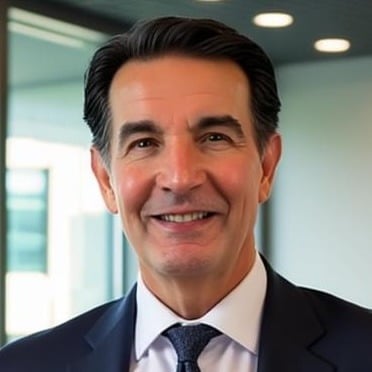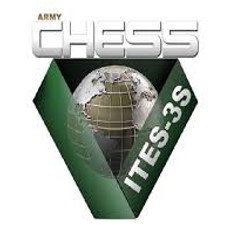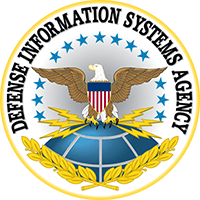Recognizing a Hero Culture
A “hero culture” is an organization, or a functional area of the organization, that is run by a group of hard-working, highly talented “heroes” on sheer strength, will and knowledge.
The organization’s heroes put in the long hours to get the job done – because, and often ostensibly, because others in the organization do not have the knowledge, judgment, experience, training or skills to do the job.
The transformation from a hero culture to a business process based operating culture is difficult.
Organizations that fit the hero culture profile are characterized by rapid growth driven by a cast of “Heroes.” Heroes are the core group of people that are very intelligent and very driven. They figure out the business “as they go” because often there is not a traditional model to follow.
Contrary to appearances, the hero-based culture is extremely inefficient and creates a rigid environment that lacks the agility to respond to rapidly changing conditions – customers, competitors, product lines, regulations, economics, talent, etc.
The business operational knowledge of the organization lives largely as tribal knowledge in the minds of the heroes and has not been captured and formally disseminated among the “troops.”
The Strategic Inflection Point
Growth drives successful organizations to reach a “strategic inflection point,” a term coined by Andy Grove of Intel. A strategic inflection point is a major shift or change in an organization’s business environment – such as competition, regulatory change or economic conditions that requires an organization to rapidly adapt - or risk going into decline.
The inflection point of rapid growth occurs when the organization’s internal stakeholders – staff and management sense that the chaos is becoming increasing unmanageable while concurrently the organization is increasingly accountable to a broader range of external stakeholders, including shareholders, banks and regulators.
With forces of change building to a point of transformation, the organization has to develop operational efficiency and produce consistent, timely and reliable operating metrics.
To successfully move through this strategic inflection point, an organization has to transform from an entrepreneurial, hero-oriented culture, to an operating company based on business process.
A process-based culture enables an organization to scale - grow revenue exponentially while adding resources linearly. The organization is “scalable.” Being scalable is essential to creating business value. This is because a process-based culture allows business processes, rather than highly experienced heroes, to do the heavy work associated with rules-based procedures.
Alternatively, as a hero-oriented organization grows, the organization must add more heroes in proportion to its growth. The hero’s staff is not being trained to do the work. Each “hero” has a monopoly on the skills and knowledge to manage their area of work.
A hero-oriented organization cannot leverage the talent of its heroes. To expand, they need to hire more heroes. Knowledge, judgment, skills and information are bottlenecked into the hero culture.
Stuck in a Hero Culture
Many mature organizations are also stuck in a hero culture. And this problem is not limited to early stage start-ups. Many large organizations struggle to move through a strategic inflection point. Rather than transforming into a process-driven culture, they remain stuck.
The same is also true on a “micro” level in the organization, within business functions departments, divisions or business areas. Some areas may evolve to become process-oriented, while others remain stuck in a hero-culture. That’s a big problem!
A hero culture stunts an organization’s ability to scale-up and become more efficient. Heroes do not develop the people who report to them. Heroes expose businesses to risk because heroes are often the sole source for that deep tribal knowledge.
Hero work is not sustainable – heroes eventually burn-out. There is inherent risk associated with losing a hero with deep tribal knowledge. Heroes tend to bottleneck business process because they, alone, can handle their work.
Transformation from a Hero to a Process Based Culture
The the catalyst for transformation in early stage rapid growth organizations are external stakeholders - bankers, shareholders, customers, etc. who demand transformation.
Optimally, the catalyst for change in a mature organization stuck in a hero culture is the board of directors and senior management team, on behalf of the stockholders and stakeholders in the organization.
But often, the hero culture is only seen at a functional level, below the purview of senior management. In such an organization, it’s essential for management and staff to recognize and acknowledge the hero-oriented culture.
If you identify with the hero-culture in your organization, it is a red flag that your organization needs to change. Be the catalyst for change in your organization – it’s essential to thriving in a rapidly changing globally competitive business environment.
The Next Step
It's a very complex, globally competitive, rapidly changing business environment. Ask yourself some critical questions. Are the business processes and supporting applications in your organization really keeping pace with ever increasing demands for organizational effectiveness and operational efficiency?
Do your team and your organization have the critical thinking skills and analysis techniques to rapidly identify, analyze and articulate essential business requirements? Are you able to rapidly define and specify your business requirements at the level of detail of functional requirements?
If you can, what are the benefits? If you can’t, what are the risks?
Successful business analysis requires business knowledge, adept judgment and seasoned experience. Inteq’s elite business analysis training programs and professional consulting services enable you, your team and you organization to achieve high-impact high-value results quickly.
Subscribe to my blog | Visit our Knowledge Hub
Visit my YouTube channel | Connect with me on LinkedIn
Check out our Business Analysis Training Courses and Consulting Services




















